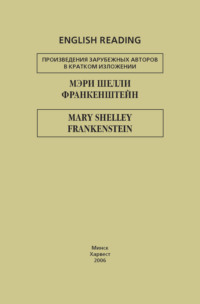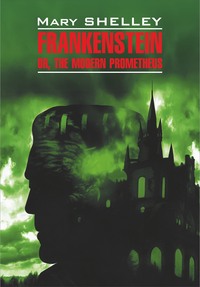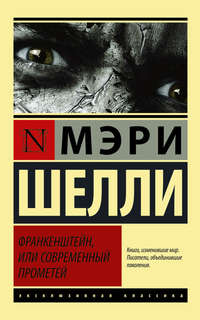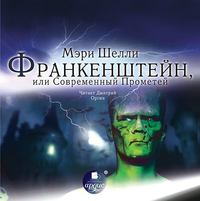 полная версия
полная версияNotes to the Complete Poetical Works of Percy Bysshe Shelley
"Hellas" was among the last of his compositions, and is among the most beautiful. The choruses are singularly imaginative, and melodious in their versification. There are some stanzas that beautifully exemplify Shelley's peculiar style; as, for instance, the assertion of the intellectual empire which must be for ever the inheritance of the country of Homer, Sophocles, and Plato: —
'But Greece and her foundations areBuilt below the tide of war,Based on the crystalline seaOf thought and its eternity.'And again, that philosophical truth felicitously imaged forth —
'Revenge and Wrong bring forth their kind,The foul cubs like their parents are,Their den is in the guilty mind,And Conscience feeds them with despair.'The conclusion of the last chorus is among the most beautiful of his lyrics. The imagery is distinct and majestic; the prophecy, such as poets love to dwell upon, the Regeneration of Mankind – and that regeneration reflecting back splendour on the foregone time, from which it inherits so much of intellectual wealth, and memory of past virtuous deeds, as must render the possession of happiness and peace of tenfold value.
NOTE ON THE EARLY POEMS, BY MRS. SHELLEY
The remainder of Shelley's Poems will be arranged in the order in which they were written. Of course, mistakes will occur in placing some of the shorter ones; for, as I have said, many of these were thrown aside, and I never saw them till I had the misery of looking over his writings after the hand that traced them was dust; and some were in the hands of others, and I never saw them till now. The subjects of the poems are often to me an unerring guide; but on other occasions I can only guess, by finding them in the pages of the same manuscript book that contains poems with the date of whose composition I am fully conversant. In the present arrangement all his poetical translations will be placed together at the end.
The loss of his early papers prevents my being able to give any of the poetry of his boyhood. Of the few I give as "Early Poems", the greater part were published with "Alastor"; some of them were written previously, some at the same period. The poem beginning 'Oh, there are spirits in the air' was addressed in idea to Coleridge, whom he never knew; and at whose character he could only guess imperfectly, through his writings, and accounts he heard of him from some who knew him well. He regarded his change of opinions as rather an act of will than conviction, and believed that in his inner heart he would be haunted by what Shelley considered the better and holier aspirations of his youth. The summer evening that suggested to him the poem written in the churchyard of Lechlade occurred during his voyage up the Thames in 1815. He had been advised by a physician to live as much as possible in the open air; and a fortnight of a bright warm July was spent in tracing the Thames to its source. He never spent a season more tranquilly than the summer of 1815. He had just recovered from a severe pulmonary attack; the weather was warm and pleasant. He lived near Windsor Forest; and his life was spent under its shades or on the water, meditating subjects for verse. Hitherto, he had chiefly aimed at extending his political doctrines, and attempted so to do by appeals in prose essays to the people, exhorting them to claim their rights; but he had now begun to feel that the time for action was not ripe in England, and that the pen was the only instrument wherewith to prepare the way for better things.
In the scanty journals kept during those years I find a record of the books that Shelley read during several years. During the years of 1814 and 1815 the list is extensive. It includes, in Greek, Homer, Hesiod, Theocritus, the histories of Thucydides and Herodotus, and Diogenes Laertius. In Latin, Petronius, Suetonius, some of the works of Cicero, a large proportion of those of Seneca and Livy. In English, Milton's poems, Wordsworth's "Excursion", Southey's "Madoc" and "Thalaba", Locke "On the Human Understanding", Bacon's "Novum Organum". In Italian, Ariosto, Tasso, and Alfieri. In French, the "Reveries d'un Solitaire" of Rousseau. To these may be added several modern books of travel. He read few novels.
NOTE ON POEMS OF 1816, BY MRS. SHELLEY
Shelley wrote little during this year. The poem entitled "The Sunset" was written in the spring of the year, while still residing at Bishopsgate. He spent the summer on the shores of the Lake of Geneva. The "Hymn to Intellectual Beauty" was conceived during his voyage round the lake with Lord Byron. He occupied himself during this voyage by reading the "Nouvelle Heloise" for the first time. The reading it on the very spot where the scenes are laid added to the interest; and he was at once surprised and charmed by the passionate eloquence and earnest enthralling interest that pervade this work. There was something in the character of Saint-Preux, in his abnegation of self, and in the worship he paid to Love, that coincided with Shelley's own disposition; and, though differing in many of the views and shocked by others, yet the effect of the whole was fascinating and delightful.
"Mont Blanc" was inspired by a view of that mountain and its surrounding peaks and valleys, as he lingered on the Bridge of Arve on his way through the Valley of Chamouni. Shelley makes the following mention of this poem in his publication of the "History of a Six Weeks' Tour, and Letters from Switzerland": 'The poem entitled "Mont Blanc" is written by the author of the two letters from Chamouni and Vevai. It was composed under the immediate impression of the deep and powerful feelings excited by the objects which it attempts to describe; and, as an undisciplined overflowing of the soul, rests its claim to approbation on an attempt to imitate the untamable wildness and inaccessible solemnity from which those feelings sprang.'
This was an eventful year, and less time was given to study than usual. In the list of his reading I find, in Greek, Theocritus, the "Prometheus" of Aeschylus, several of Plutarch's "Lives", and the works of Lucian. In Latin, Lucretius, Pliny's "Letters", the "Annals" and "Germany" of Tacitus. In French, the "History of the French Revolution" by Lacretelle. He read for the first time, this year, Montaigne's "Essays", and regarded them ever after as one of the most delightful and instructive books in the world. The list is scanty in English works: Locke's "Essay", "Political Justice", and Coleridge's "Lay Sermon", form nearly the whole. It was his frequent habit to read aloud to me in the evening; in this way we read, this year, the New Testament, "Paradise Lost", Spenser's "Faery Queen", and "Don Quixote".
NOTE ON POEMS OF 1817, BY MRS. SHELLEY
The very illness that oppressed, and the aspect of death which had approached so near Shelley, appear to have kindled to yet keener life the Spirit of Poetry in his heart. The restless thoughts kept awake by pain clothed themselves in verse. Much was composed during this year. The "Revolt of Islam", written and printed, was a great effort – "Rosalind and Helen" was begun – and the fragments and poems I can trace to the same period show how full of passion and reflection were his solitary hours.
In addition to such poems as have an intelligible aim and shape, many a stray idea and transitory emotion found imperfect and abrupt expression, and then again lost themselves in silence. As he never wandered without a book and without implements of writing, I find many such, in his manuscript books, that scarcely bear record; while some of them, broken and vague as they are, will appear valuable to those who love Shelley's mind, and desire to trace its workings.
He projected also translating the "Hymns" of Homer; his version of several of the shorter ones remains, as well as that to Mercury already published in the "Posthumous Poems". His readings this year were chiefly Greek. Besides the "Hymns" of Homer and the "Iliad", he read the dramas of Aeschylus and Sophocles, the "Symposium" of Plato, and Arrian's "Historia Indica". In Latin, Apuleius alone is named. In English, the Bible was his constant study; he read a great portion of it aloud in the evening. Among these evening readings I find also mentioned the "Faerie Queen"; and other modern works, the production of his contemporaries, Coleridge, Wordsworth, Moore and Byron.
His life was now spent more in thought than action – he had lost the eager spirit which believed it could achieve what it projected for the benefit of mankind. And yet in the converse of daily life Shelley was far from being a melancholy man. He was eloquent when philosophy or politics or taste were the subjects of conversation. He was playful; and indulged in the wild spirit that mocked itself and others – not in bitterness, but in sport. The author of "Nightmare Abbey" seized on some points of his character and some habits of his life when he painted Scythrop. He was not addicted to 'port or madeira,' but in youth he had read of 'Illuminati and Eleutherarchs,' and believed that he possessed the power of operating an immediate change in the minds of men and the state of society. These wild dreams had faded; sorrow and adversity had struck home; but he struggled with despondency as he did with physical pain. There are few who remember him sailing paper boats, and watching the navigation of his tiny craft with eagerness – or repeating with wild energy "The Ancient Mariner", and Southey's "Old Woman of Berkeley"; but those who do will recollect that it was in such, and in the creations of his own fancy when that was most daring and ideal, that he sheltered himself from the storms and disappointments, the pain and sorrow, that beset his life.
No words can express the anguish he felt when his elder children were torn from him. In his first resentment against the Chancellor, on the passing of the decree, he had written a curse, in which there breathes, besides haughty indignation, all the tenderness of a father's love, which could imagine and fondly dwell upon its loss and the consequences.
At one time, while the question was still pending, the Chancellor had said some words that seemed to intimate that Shelley should not be permitted the care of any of his children, and for a moment he feared that our infant son would be torn from us. He did not hesitate to resolve, if such were menaced, to abandon country, fortune, everything, and to escape with his child; and I find some unfinished stanzas addressed to this son, whom afterwards we lost at Rome, written under the idea that we might suddenly be forced to cross the sea, so to preserve him. This poem, as well as the one previously quoted, were not written to exhibit the pangs of distress to the public; they were the spontaneous outbursts of a man who brooded over his wrongs and woes, and was impelled to shed the grace of his genius over the uncontrollable emotions of his heart. I ought to observe that the fourth verse of this effusion is introduced in "Rosalind and Helen". When afterwards this child died at Rome, he wrote, a propos of the English burying-ground in that city: 'This spot is the repository of a sacred loss, of which the yearnings of a parent's heart are now prophetic; he is rendered immortal by love, as his memory is by death. My beloved child lies buried here. I envy death the body far less than the oppressors the minds of those whom they have torn from me. The one can only kill the body, the other crushes the affections.'
NOTE ON POEMS OF 1818, BY MRS. SHELLEY
We often hear of persons disappointed by a first visit to Italy. This was not Shelley's case. The aspect of its nature, its sunny sky, its majestic storms, of the luxuriant vegetation of the country, and the noble marble-built cities, enchanted him. The sight of the works of art was full enjoyment and wonder. He had not studied pictures or statues before; he now did so with the eye of taste, that referred not to the rules of schools, but to those of Nature and truth. The first entrance to Rome opened to him a scene of remains of antique grandeur that far surpassed his expectations; and the unspeakable beauty of Naples and its environs added to the impression he received of the transcendent and glorious beauty of Italy.
Our winter was spent at Naples. Here he wrote the fragments of "Marenghi" and "The Woodman and the Nightingale", which he afterwards threw aside. At this time, Shelley suffered greatly in health. He put himself under the care of a medical man, who promised great things, and made him endure severe bodily pain, without any good results. Constant and poignant physical suffering exhausted him; and though he preserved the appearance of cheerfulness, and often greatly enjoyed our wanderings in the environs of Naples, and our excursions on its sunny sea, yet many hours were passed when his thoughts, shadowed by illness, became gloomy, – and then he escaped to solitude, and in verses, which he hid from fear of wounding me, poured forth morbid but too natural bursts of discontent and sadness. One looks back with unspeakable regret and gnawing remorse to such periods; fancying that, had one been more alive to the nature of his feelings, and more attentive to soothe them, such would not have existed. And yet, enjoying as he appeared to do every sight or influence of earth or sky, it was difficult to imagine that any melancholy he showed was aught but the effect of the constant pain to which he was a martyr.
We lived in utter solitude. And such is often not the nurse of cheerfulness; for then, at least with those who have been exposed to adversity, the mind broods over its sorrows too intently; while the society of the enlightened, the witty, and the wise, enables us to forget ourselves by making us the sharers of the thoughts of others, which is a portion of the philosophy of happiness. Shelley never liked society in numbers, – it harassed and wearied him; but neither did he like loneliness, and usually, when alone, sheltered himself against memory and reflection in a book. But, with one or two whom he loved, he gave way to wild and joyous spirits, or in more serious conversation expounded his opinions with vivacity and eloquence. If an argument arose, no man ever argued better. He was clear, logical, and earnest, in supporting his own views; attentive, patient, and impartial, while listening to those on the adverse side. Had not a wall of prejudice been raised at this time between him and his countrymen, how many would have sought the acquaintance of one whom to know was to love and to revere! How many of the more enlightened of his contemporaries have since regretted that they did not seek him! how very few knew his worth while he lived! and, of those few, several were withheld by timidity or envy from declaring their sense of it. But no man was ever more enthusiastically loved – more looked up to, as one superior to his fellows in intellectual endowments and moral worth, by the few who knew him well, and had sufficient nobleness of soul to appreciate his superiority. His excellence is now acknowledged; but, even while admitted, not duly appreciated. For who, except those who were acquainted with him, can imagine his unwearied benevolence, his generosity, his systematic forbearance? And still less is his vast superiority in intellectual attainments sufficiently understood – his sagacity, his clear understanding, his learning, his prodigious memory. All these as displayed in conversation, were known to few while he lived, and are now silent in the tomb:
'Ahi orbo mondo ingrato!Gran cagion hai di dever pianger meco;Che quel ben ch' era in te, perdut' hai seco.'NOTE ON POEMS OF 1819, BY MRS. SHELLEY
Shelley loved the People; and respected them as often more virtuous, as always more suffering, and therefore more deserving of sympathy, than the great. He believed that a clash between the two classes of society was inevitable, and he eagerly ranged himself on the people's side. He had an idea of publishing a series of poems adapted expressly to commemorate their circumstances and wrongs. He wrote a few; but, in those days of prosecution for libel, they could not be printed. They are not among the best of his productions, a writer being always shackled when he endeavours to write down to the comprehension of those who could not understand or feel a highly imaginative style; but they show his earnestness, and with what heart-felt compassion he went home to the direct point of injury – that oppression is detestable as being the parent of starvation, nakedness, and ignorance. Besides these outpourings of compassion and indignation, he had meant to adorn the cause he loved with loftier poetry of glory and triumph: such is the scope of the "Ode to the Assertors of Liberty". He sketched also a new version of our national anthem, as addressed to Liberty.
NOTE ON POEMS OF 1820, BY MRS. SHELLEY
We spent the latter part of the year 1819 in Florence, where Shelley passed several hours daily in the Gallery, and made various notes on its ancient works of art. His thoughts were a good deal taken up also by the project of a steamboat, undertaken by a friend, an engineer, to ply between Leghorn and Marseilles, for which he supplied a sum of money. This was a sort of plan to delight Shelley, and he was greatly disappointed when it was thrown aside.
There was something in Florence that disagreed excessively with his health, and he suffered far more pain than usual; so much so that we left it sooner than we intended, and removed to Pisa, where we had some friends, and, above all, where we could consult the celebrated Vacca as to the cause of Shelley's sufferings. He, like every other medical man, could only guess at that, and gave little hope of immediate relief; he enjoined him to abstain from all physicians and medicine, and to leave his complaint to Nature. As he had vainly consulted medical men of the highest repute in England, he was easily persuaded to adopt this advice. Pain and ill-health followed him to the end; but the residence at Pisa agreed with him better than any other, and there in consequence we remained.
In the Spring we spent a week or two near Leghorn, borrowing the house of some friends who were absent on a journey to England. It was on a beautiful summer evening, while wandering among the lanes whose myrtle-hedges were the bowers of the fire-flies, that we heard the carolling of the skylark which inspired one of the most beautiful of his poems. He addressed the letter to Mrs. Gisborne from this house, which was hers: he had made his study of the workshop of her son, who was an engineer. Mrs. Gisborne had been a friend of my father in her younger days. She was a lady of great accomplishments, and charming from her frank and affectionate nature. She had the most intense love of knowledge, a delicate and trembling sensibility, and preserved freshness of mind after a life of considerable adversity. As a favourite friend of my father, we had sought her with eagerness; and the most open and cordial friendship was established between us.
Our stay at the Baths of San Giuliano was shortened by an accident. At the foot of our garden ran the canal that communicated between the Serchio and the Arno. The Serchio overflowed its banks, and, breaking its bounds, this canal also overflowed; all this part of the country is below the level of its rivers, and the consequence was that it was speedily flooded. The rising waters filled the Square of the Baths, in the lower part of which our house was situated. The canal overflowed in the garden behind; the rising waters on either side at last burst open the doors, and, meeting in the house, rose to the height of six feet. It was a picturesque sight at night to see the peasants driving the cattle from the plains below to the hills above the Baths. A fire was kept up to guide them across the ford; and the forms of the men and the animals showed in dark relief against the red glare of the flame, which was reflected again in the waters that filled the Square.
We then removed to Pisa, and took up our abode there for the winter. The extreme mildness of the climate suited Shelley, and his solitude was enlivened by an intercourse with several intimate friends. Chance cast us strangely enough on this quiet half-unpeopled town; but its very peace suited Shelley. Its river, the near mountains, and not distant sea, added to its attractions, and were the objects of many delightful excursions. We feared the south of Italy, and a hotter climate, on account of our child; our former bereavement inspiring us with terror. We seemed to take root here, and moved little afterwards; often, indeed, entertaining projects for visiting other parts of Italy, but still delaying. But for our fears on account of our child, I believe we should have wandered over the world, both being passionately fond of travelling. But human life, besides its great unalterable necessities, is ruled by a thousand lilliputian ties that shackle at the time, although it is difficult to account afterwards for their influence over our destiny.
NOTE ON POEMS OF 1821, BY MRS. SHELLEY
My task becomes inexpressibly painful as the year draws near that which sealed our earthly fate, and each poem, and each event it records, has a real or mysterious connection with the fatal catastrophe. I feel that I am incapable of putting on paper the history of those times. The heart of the man, abhorred of the poet, who could does not appear to me more inexplicably framed than that of one who can dissect and probe past woes, and repeat to the public ear the groans drawn from them in the throes of their agony.
'peep and botanizeUpon his mother's grave,'The year 1821 was spent in Pisa, or at the Baths of San Giuliano. We were not, as our wont had been, alone; friends had gathered round us. Nearly all are dead, and, when Memory recurs to the past, she wanders among tombs. The genius, with all his blighting errors and mighty powers; the companion of Shelley's ocean-wanderings, and the sharer of his fate, than whom no man ever existed more gentle, generous, and fearless; and others, who found in Shelley's society, and in his great knowledge and warm sympathy, delight, instruction, and solace; have joined him beyond the grave. A few survive who have felt life a desert since he left it. What misfortune can equal death? Change can convert every other into a blessing, or heal its sting – death alone has no cure. It shakes the foundations of the earth on which we tread; it destroys its beauty; it casts down our shelter; it exposes us bare to desolation. When those we love have passed into eternity, 'life is the desert and the solitude' in which we are forced to linger – but never find comfort more.
There is much in the "Adonais" which seems now more applicable to Shelley himself than to the young and gifted poet whom he mourned. The poetic view he takes of death, and the lofty scorn he displays towards his calumniators, are as a prophecy on his own destiny when received among immortal names, and the poisonous breath of critics has vanished into emptiness before the fame he inherits.
Shelley's favourite taste was boating; when living near the Thames or by the Lake of Geneva, much of his life was spent on the water. On the shore of every lake or stream or sea near which he dwelt, he had a boat moored. He had latterly enjoyed this pleasure again. There are no pleasure-boats on the Arno; and the shallowness of its waters (except in winter-time, when the stream is too turbid and impetuous for boating) rendered it difficult to get any skiff light enough to float. Shelley, however, overcame the difficulty; he, together with a friend, contrived a boat such as the huntsmen carry about with them in the Maremma, to cross the sluggish but deep streams that intersect the forests, – a boat of laths and pitched canvas. It held three persons; and he was often seen on the Arno in it, to the horror of the Italians, who remonstrated on the danger, and could not understand how anyone could take pleasure in an exercise that risked life. 'Ma va per la vita!' they exclaimed. I little thought how true their words would prove. He once ventured, with a friend, on the glassy sea of a calm day, down the Arno and round the coast to Leghorn, which, by keeping close in shore, was very practicable. They returned to Pisa by the canal, when, missing the direct cut, they got entangled among weeds, and the boat upset; a wetting was all the harm done, except that the intense cold of his drenched clothes made Shelley faint. Once I went down with him to the mouth of the Arno, where the stream, then high and swift, met the tideless sea, and disturbed its sluggish waters. It was a waste and dreary scene; the desert sand stretched into a point surrounded by waves that broke idly though perpetually around; it was a scene very similar to Lido, of which he had said —









